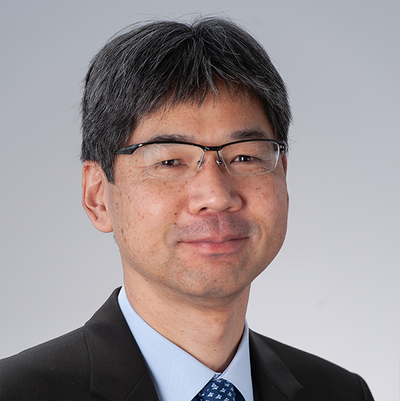
Research Topics
Dr. Terabe has been a passionate immunology researcher for over 20 years, specializing in T-lymphocytes. Since joining the Laboratory of Integrative Cancer Immunology (LICI) to lead the Basic Immunology Research Program, he has focused on determining the role of natural killer T (NKT) cells in the context of brain tumors. While there are various types of T-lymphocytes, NKT cells stand out for a few reasons. First, NKT cells prefer lipids as their antigen of choice, which are enriched or highly expressed in the brain. Second, NKT cells mount a response as quickly as the innate immune system, while retaining the antigen specificity of T-cells in the adaptive immune system. Because tumor immunity is driven by many immune system components that can either decrease or promote growth, NKT cells with specific lipid targets in the brain could be ideal mediators of immunotherapy to suppresses malignancy.
There are several upcoming projects in Dr. Terabe’s lab investigating the role of NKT cells specifically in glioblastoma, which is an area that has not been previously well investigated. Dr. Terabe hopes to elucidate how tumor growth or development—as well as immune cell recruitment to the tumor site—may differ in the absence of NKT cells in mouse models of the immune system. NKT cells have been known to specifically target lipids, which can undergo changes in expression upon tumor development and progression in various cancers.
Another focus of the lab is sulfatide, a lipid in the myelin sheath that can be recognized by NKT cells. Sulfatide could assist in recruiting NKT cells to the tumor, even if the lipids undergo minor changes in the tumor microenvironment.
Finally, because NKT cells have an innate response component and are often referred to as innate T-lymphocytes, Dr. Terabe’s team hopes to elucidate the mechanisms behind tumor immunity in glioblastoma with a specific focus on NKT cells.
Biography
Dr. Terabe joined the Laboratory of Integrative Cancer Immunology (LICI) to lead the Basic Immunology Research Program and extend his immunology expertise to brain tumors. He received his Ph.D. from the University of Tokyo in 1999, studying immune responses to parasitic infections. He subsequently arrived at the NCI as a visiting fellow at the Molecular Immunogenetics and Vaccine Section of the Metabolism Branch, which is now part of the Vaccine Branch. He later graduated to research fellow (2002-2005), staff scientist (2005-2007), associate scientist (2007-2017), and senior associate scientist (2017-2019). He began collaborating with investigators on tumor immunology projects, and gained insight into how studying the immune system can aid treatment interventions. Dr. Terabe joined the NOB as an investigator in early 2019 in order to pursue this long-standing interest in brain tumors—and investigate the role of immunology in glioblastoma.
In addition to his impressive research career in immunology, Dr. Terabe has published over eighty papers and received numerous awards. Notably, he was awarded the NCI Director’s Innovation Award in 2006 and again in 2010, along with the NCI Technology Transfer Award thirteen times over the last eighteen years. He currently has 16 patents either in process or already issued. He also serves as a board member for The Open Cancer Immunology Journal, while also serving as a reviewer and editor for numerous other journals.
Honors, Awards and Leadership
- Technology Transfer Award, Center for Cancer Research, National Cancer Institute (consecutive years ranging from 2001, 2003-2012, 2014-2016)
- Janson Award, Alumni Association of Veterinary Medicine and Animal Science, University of Tokyo (2011)
- Director’s Innovation Award, National Cancer Institute (2006, 2010)
- AAI Junior Faculty Award, American Association for Immunologists (2004)
- Special Act or Service Cash Award, National Cancer Institute (2004, 2017)
- The Fellows Award for Research Excellence, National Institutes for Health (2001, 2003)
- Postdoctoral Fellow Award - Best Paper of the Year, The NIH Cytokine Interested Group (2001)
Societies and Initiatives
- American Association of Immunologists (AAI)
- American Association of Cancer Research (AACR)
- Japanese Society for Immunology (JSI)
- Society for Immunotherapy of Cancer (SITC)
- Society for Neuro-Oncology (SNO)
- Board member, The Open Cancer Immunology Journal (2008- 2013)
- Review Editor, Frontiers in Antigen Presenting Cell Biology (2010 - present) and Frontiers in Oncology (2019 - present)
- Grant Reviewer, The Cancer Society of New Zealand (2011), Austrian Academy of Science (2014), Czech Science Foundation (2015), and Cancer Research UK (2015)
Selected Publications
- Kato S, Berzofsky JA, Terabe M. Possible Therapeutic Application of Targeting Type II Natural Killer T Cell-Mediated Suppression of Tumor Immunity. Front Immunol. 2018;9:314.
- Maeng H, Terabe M, Berzofsky JA. Cancer vaccines: translation from mice to human clinical trials. Curr Opin Immunol. 2018;51:111-122.
- Terabe M, Robertson FC, Clark K, De Ravin E, Bloom A, Venzon DJ, Kato S, Mirza A, Berzofsky JA. Blockade of only TGF-β 1 and 2 is sufficient to enhance the efficacy of vaccine and PD-1 checkpoint blockade immunotherapy. Oncoimmunology. 2017;6(5):e1308616.
- Castiello L, Sabatino M, Ren J, Terabe M, Khuu H, Wood LV, Berzofsky JA, Stroncek DF. Expression of CD14, IL10, and Tolerogenic Signature in Dendritic Cells Inversely Correlate with Clinical and Immunologic Response to TARP Vaccination in Prostate Cancer Patients. Clin Cancer Res. 2017;23(13):3352-3364.
- Ma C, Kesarwala AH, Eggert T, Medina-Echeverz J, Kleiner DE, Jin P, Stroncek DF, Terabe M, Kapoor V, ElGindi M, Han M, Thornton AM, Zhang H, Egger M, Luo J, Felsher DW, McVicar DW, Weber A, Heikenwalder M, Greten TF. NAFLD causes selective CD4(+) T lymphocyte loss and promotes hepatocarcinogenesis. Nature. 2016;531(7593):253-7.
Related Scientific Focus Areas




Molecular Biology and Biochemistry
View additional Principal Investigators in Molecular Biology and Biochemistry

This page was last updated on Monday, April 28, 2025